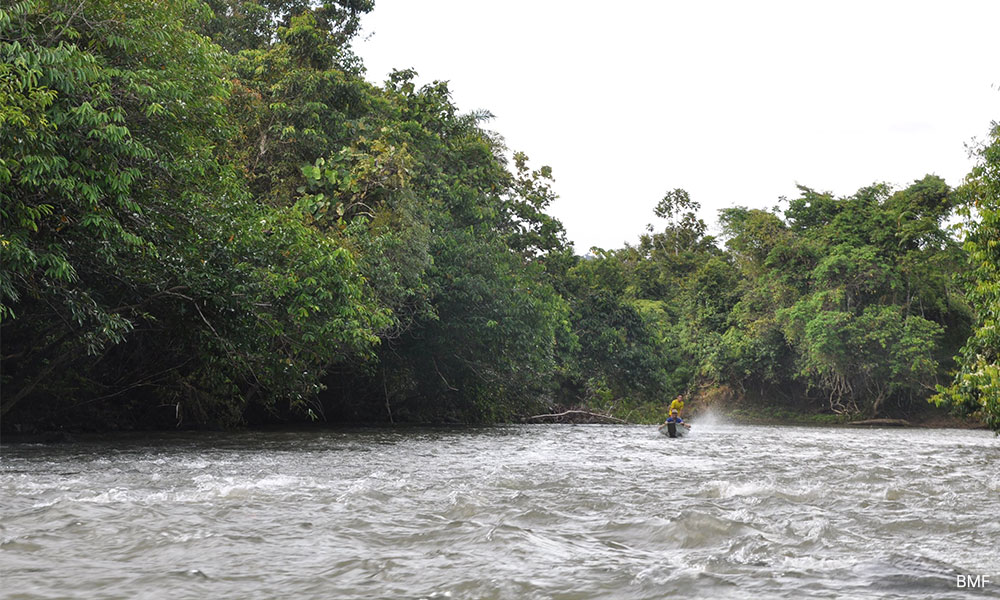Affected communities are being further confused this week following a statement by a deputy minister that objections to the proposed Sungai Tutoh/Apoh cascading dam project in Baram are premature.
"Deputy Minister Gerawat Gala said that opposition was premature given the project was still in its preliminary stages and that consultations have not taken place given the project’s contingency on a feasibility study.
"This is a direct contradiction to earlier statements from Sarawak Premier Abang Johari Openg, who was reported as saying that affected communities had written support letters and that the project had essentially already been greenlit,” said Save Rivers managing director Celine Lim.
“An earlier article in The Borneo Post claimed that the dam plans had come from the communities themselves.
“Either the community came up with these dam plans and requested it as the premier has suggested, or no consultations have occurred as the deputy minister has stated,” she added.
Lim (above) also pointed out that both contradictory claims could not be true.
“It cannot be both. We have not heard of any communities that support these plans. How were these requests presented? Who presented them to the premier? Affected communities have more questions than clarity on this matter,” she added.
Community’s right to a say
Gerawat had said that those reported to be against the building of the cascading dam should not jump the gun and start campaigning against the proposal before the start of the feasibility study and the final decision-making process.
"Gerawat’s statement this week also told communities to ‘be rational instead of getting agitated and emotional prematurely’.
“As directly affected communities, we can oppose this project at any stage. This is the right afforded to us," said Sagung Raja from Ba'Marong, a Penan community along the Tutoh river.
“Who are they to tell us when we can or cannot express concern over a project that concerns our communities? How do they expect us to react when we find out the project has already been approved in the media?” he added.
Save Rivers also attached a letter to Abang Johari dated Oct 6, 2023, in which they asked about the status and performance of the current dams in Sarawak and verified data to showcase the need for new dams to meet the energy demands.
Preserving the ecosystem
The letter also asked for existing or upcoming research or data on the crocodile biodiversity, population, their threats to the communities and the data on the frequencies of their attacks through the years, as well as recommendations that can be taken to effectively and sustainably manage the crocodile populations in the Baram river.
It further sought an explanation regarding the science behind how turbines are good for riverine life such as fish, adding that it was vital to remember that the communities in Baram have expressed their resistance and opposition to the Baram dam since 2011 when a campaign was held that saw the participation of thousands of people and a public protest.

"Communities also wonder why their concerns are being dismissed in the media, despite them not receiving any response to their repeated enquiries made through official channels.
“As we stated, we have already written letters to request more information, as we only found out about these proposed projects through the newspapers,” says Willie Kajan, who is also a signatory to the first letter sent to the premier’s office last November.
“It is because we heard nothing back that we ran the petition to primarily state that we cannot and will not give consent or approval to any projects before any meaningful engagements and consultations are done.
“We are running this petition to document our sentiments and concerns and to request further information,” Willie said.
"As much as we want development, we also need to understand the scope of a project. And even though there are claims by the state that cascading dams are minimal in their socio-environmental impact, how do we know that until the information is communicated to us directly?” he questioned.
Meanwhile, Lim also urged the government to acknowledge that grassroots stakeholders are not why there is a lack of development.
“Our work is to support the people who reach out to us when they have exhausted all other avenues,” Lim said, saying that sustainable development can only be achieved when all affected parties are fully informed, engaged and included in the decision-making process.
“We welcome the deputy minister’s plans of consulting NGOs and all right-holders. We especially look forward to a response to our repeated enquiries via our letters and communications on this matter directly,” she concluded. - Mkini



No comments:
Post a Comment
Note: Only a member of this blog may post a comment.